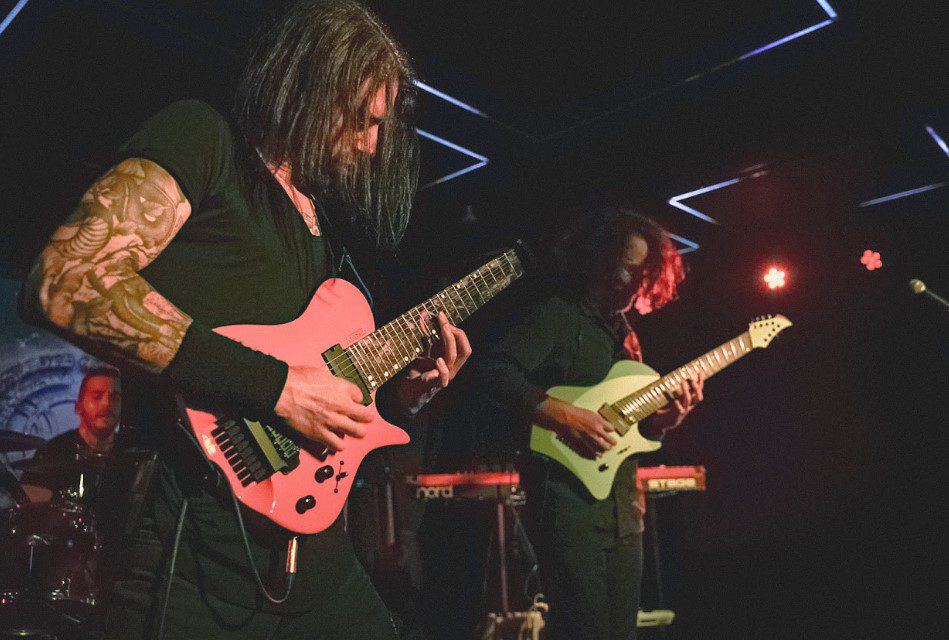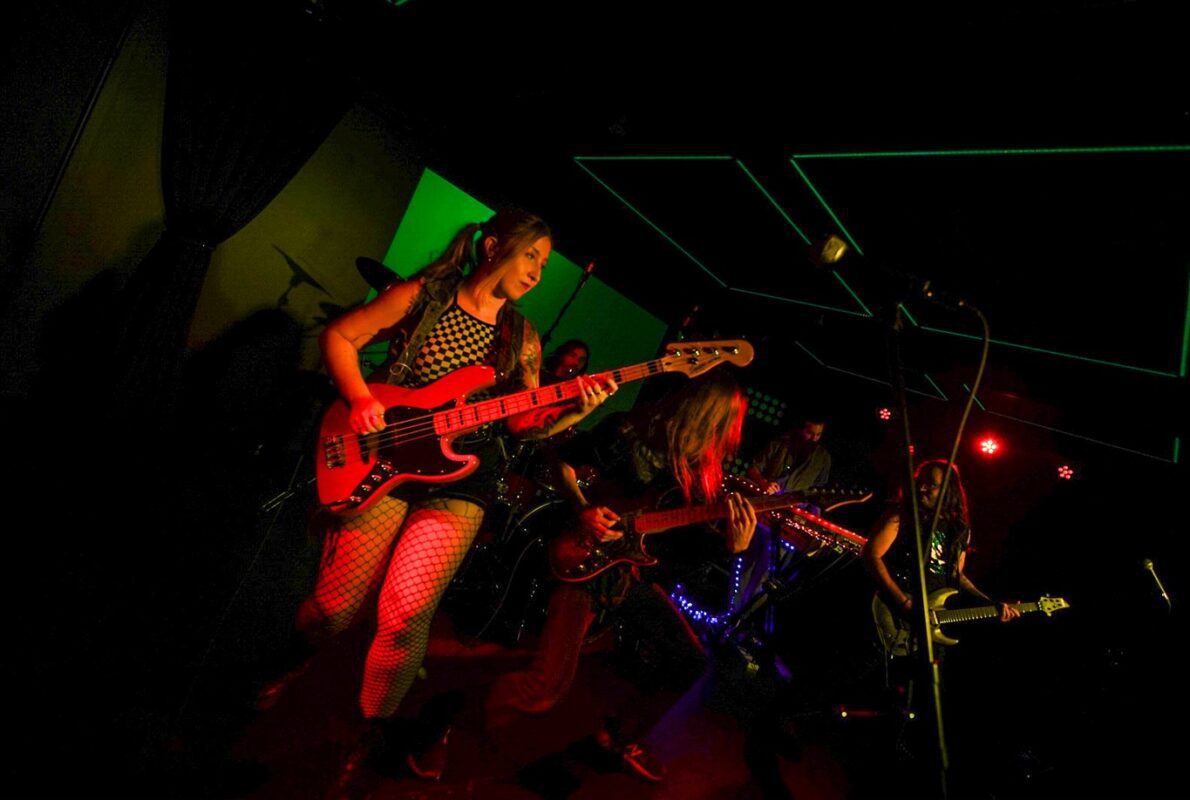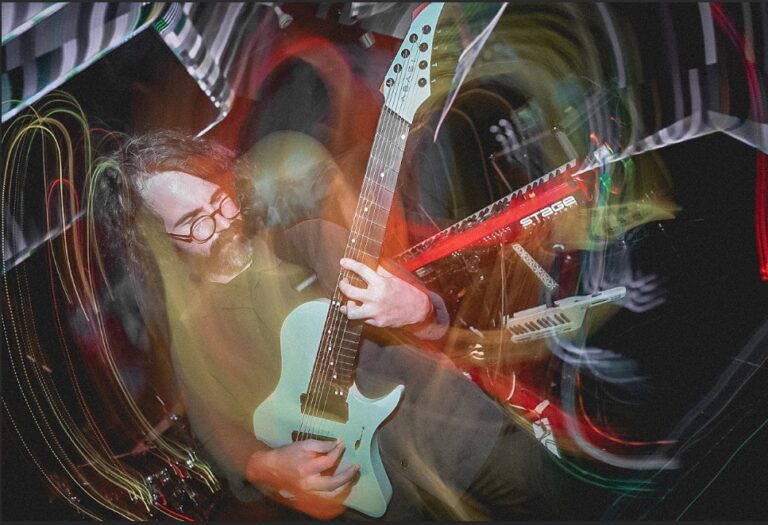On an October weekend, something unusual was afoot at Nombre 110, a venue located in the heart of the Hochelaga district’s Les Studios de Rouen practice facility : a double album launch for Montreal bands TurboQuest and Chronochromie. The two-night event juxtaposed two very different facets of today’s progressive rock.
On the one hand, flamboyant arrangements of the best video game hits, and on the other, music as heavy as it is cerebral, uncompromising in its complexity. All of this was nevertheless linked by the intellectual approach that nourished both approaches. But make no mistake about it, the live performance was spectacularly playful.
Chronochromie

If the art of being ” extremely progressive” exists in music, Chronochromie deserves particular credit. Playing for barely thirty minutes, the band left us breathless, even stunned by their inescapable technical virtuosity.
Although progressive music has developed through countless offshoots since the 1970s, there’s little to compare it with the Montreal trio. Indeed, progressive rock and metal are often developed through the elaborate concatenation of digestible musical ideas.
Even if the forms are long and bold, one of the common denominators of the genre remains the use of repetitive cells. This is not the case with Chronochromie, which varies and develops its material rather than reiterates it. On the five tracks of the EP Epoch, there’s no room for a groove of more than one bar, so densely organized is the music.
This resolutely contemporary approach is reminiscent of the new music inherited from Western classical music. Chronochromie, which takes its name from a symphonic work by Olivier Messiaen, was originally a project by the composer Alexandre David, known for his instrumental works. Rhythmic and harmonic work is therefore very advanced, with each piece of the puzzle acting as a logical step in a form that is always in motion;
In another context, the absence of repetition could be a risky choice. On the other hand, David and his cohorts always maintain a certain coherence in their music. Certain melodic and harmonic elements do indeed persist throughout the tracks, creating familiar echoes that are essential to stimulating an engaging listening experience.
While the mere performance of this music is a feat and could be enough to win over the audience, Chronochromie also surprises with the musicality of its proposition and knows how to hold anyone who gives it an ear. A burgeoning local force just waiting to be discovered.
TurboQuest

Audiences expecting to hear Zelda and Mario Bros. themes in a TurboQuest concert may be a little disappointed. While the band doesn’t omit these classics from its repertoire, it mainly arranges pieces from much more obscure games. It’s this fervent exploration of the underground of video games that continues on a second album entitled Enter the Turboverse.
Decidedly, the instrumental quintet has an audience familiar with the original material referenced. In fact, it’s this audience, the gamers, among whom TurboQuest has primarily built its reputation. The ensemble is indeed a regular at conventions such as Montreal’s Otakuthon, and maintains close ties with the Orchestre de Jeux Vidéos.
However, even for the neophyte, TurboQuest’s tracks work very well as stand-alone power metal pieces, with their progressive escapades and catchy choruses. This is an excellent measure of the artistic merit of what was presented to us. We must also salute the virtuosity of the artists, most of whom have academic training in music. Their arrangements frequently give way to solos in which every musician has a chance to shine. Hats off to the keyboardist for his use of a luminous keytar .
One thing’s for sure: there’s never a dull moment listening to these songs, performed with technical skill and strong stage presence. Beyond the nostalgia, the quintet fully embrace their rock ‘n’ roll side and the pleasure they take in reviving the playful universe that animates them. After all, that’s what video games are all about: entertainment!
























